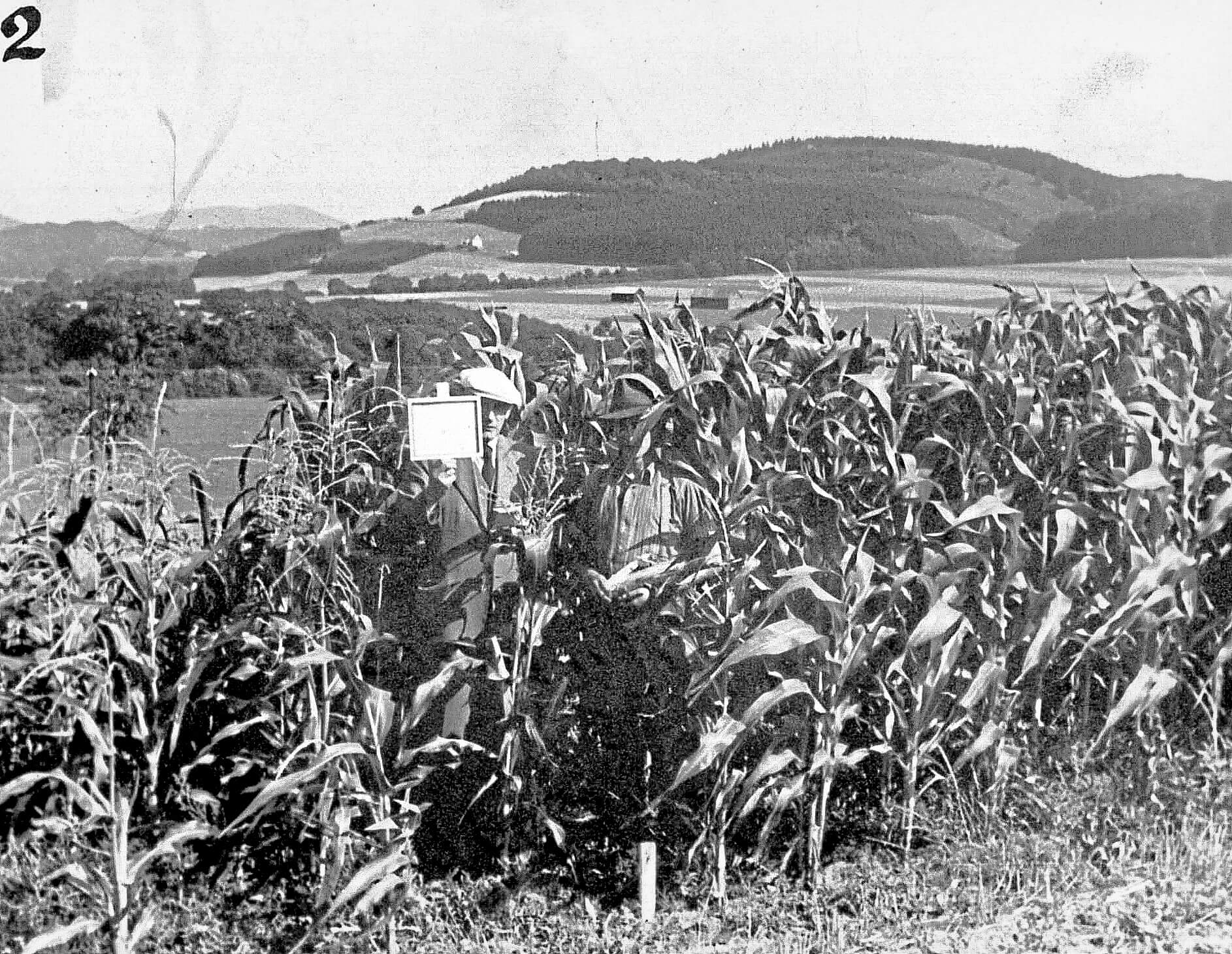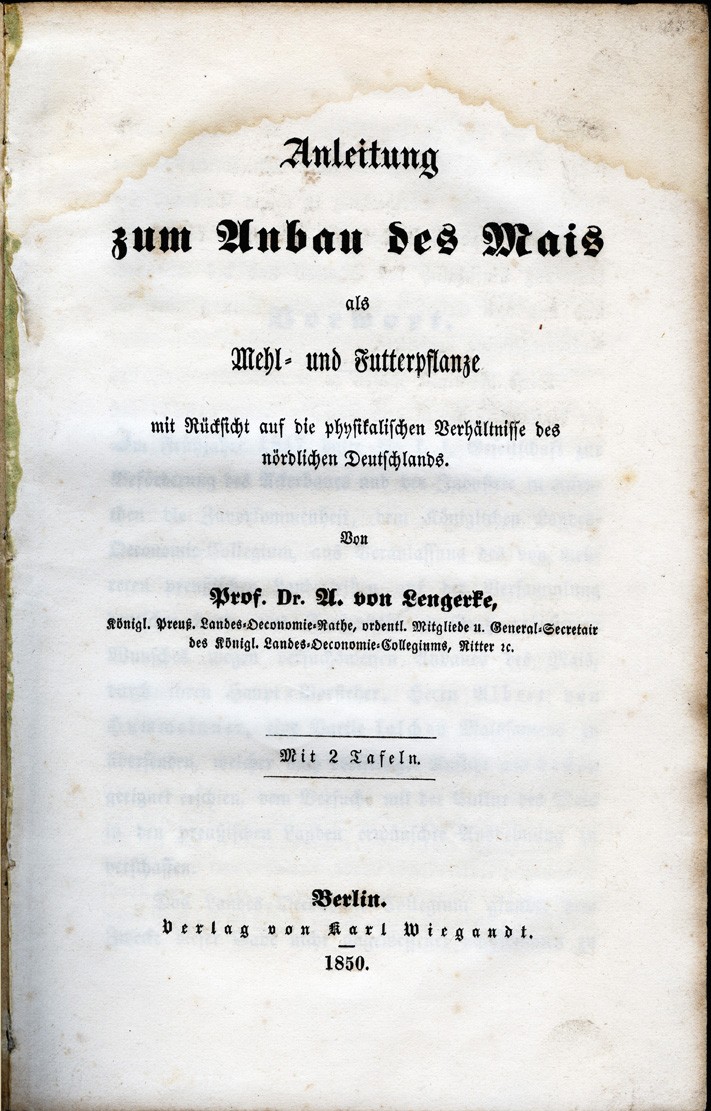20.08.2025
Book recommendation on corn cultivation from 175 years ago: Corn has a long history, even in Westphalia.
175 years ago, Alexander von Lengerke published his “Guide to Growing Corn.” In it, he recommended that Westphalian farmers grow corn—without success at the time. Nevertheless, the book was a standard work at the time and a must-have for any agricultural library. The book is part of the “Westphalian Library of Agriculture” in Münster.
Anyone driving through Westphalia cannot fail to notice the plant: corn has become an integral part of agriculture. The feed and energy crop has been cultivated on a large scale in this country since the 1960s. But corn has a much longer history, including in Westphalia. This is shown in a book published in Berlin 175 years ago. Its title: “Instructions for Growing Corn.” It states: “In Westphalia, the corn cultivation experiments conducted in the flat regions of the state for several years at the instigation of the State Economic Council have been so successful that they should be continued.” However, it would take more than 100 years for the plant to become popular in Westphalia.
How did the book end up in Münster?
This book was written by Alexander von Lengerke – “with consideration for the physical conditions of northern Germany,” as stated on the title page. Lengerke's corn book was reprinted several times. For generations of agricultural students, it was the definitive “classic” on corn cultivation. The book was found in almost every agricultural library. The Higher Agricultural School in Lüdinghausen in the Münsterland region also had a copy. Parts of this collection ended up in the “Westphalian Library of Agriculture,” which is maintained by the Agricultural Publishing Foundation in Münster-Hiltrup. Among the library's approximately 6,500 titles is the rare first edition of “Anleitung zum Anbau des Mais” (Guide to Corn Cultivation).
A prolific writer
Its author, Alexander von Lengerke (1802–1853), came from Hamburg. Both his parents were deeply rooted in merchant families in the Hanseatic city. His father worked in the municipal “debt administration.” Curiosity and economic interest led Alexander von Lengerke to travel to North America and the West Indies – and, upon his return, to decide to study agriculture, political science, and economics. He later managed two estates in Holstein and near Lübeck. Lengerke became known to a wider public through travelogues, specialist essays, and books on topics such as horse breeding, meadow cultivation, and hedge maintenance. He broke new ground with his book “Die ländliche Arbeiterfrage” (The Rural Labor Question), published in the context of the 1848 revolution. Lengerke had developed a questionnaire, which he sent to agricultural associations throughout Germany in order to evaluate the responses later. To this day, he is considered a “pioneer of empirical social research.”
Corn cultivation deserves “careful pursuit”
He also incorporated numerous reports into his “Corn Book.” In it, he described the plant in detail, including its origin, climate and soil requirements, its place in crop rotation, fertilization, and yields. He even published construction plans for a special seed drill that any carpenter or locksmith “with some skill” could replicate. Lengerke's conclusion: “The cultivation of corn in the Prussian lands deserves careful pursuit in two directions: first and foremost for the purpose of summer livestock feed, and secondly for grain production for small rural households.” Consequently, Lengerke also published recipes for cornbread, polenta, and “quick pudding” made from cornmeal in his writing. However, corn-based dishes did not become popular, either in Westphalia or elsewhere in northwestern Germany. The plant remained rare on plates and in cattle troughs. It was also only cultivated on a few fields in Westphalia, covering just 260 hectares in the whole of Westphalia around 1900. This did not change until the 1960s.
Information about the library
The Westphalian Agricultural Library (WBL) in Münster-Hiltrup comprises around 6,500 volumes of practical agricultural literature spanning five centuries. A regional focus is placed on titles from Westphalia-Lippe and northwestern Germany. The collection is owned by the Stiftung Landwirtschaftsverlag (Agricultural Publishing Foundation) in Münster and is organized as a reference library. Those interested in agricultural history can search the collection digitally (WBL-collection) and use the books on site after prior registration.


